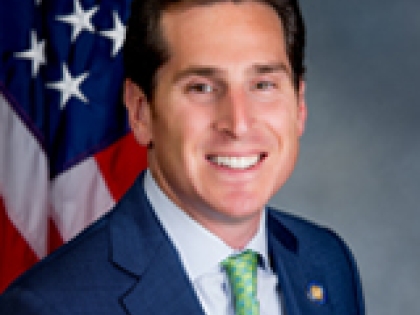
Kaminsky - Sheldon Silver saga sends dangerous signal to corrupt lawmakers
The most damaging thing about corruption is not corruption itself — it’s when everyone knows the corrupt can get away with it.
Thursday’s overturned conviction of former Assembly Speaker Sheldon Silver — who was convicted of abusing his high office to enrich himself to the tune of $4 million — was likely met with a frustrated shrug by the people of New York. Friends, family and strangers sharing a screen or newspaper in diners and bars, on buses and trains, and in offices and at kitchen tables throughout our state all quietly lost a little more faith in their government.
Welcome to New York.
But the overturned conviction in the Silver case should not be seen as proof of his innocence. The court’s decision merely acknowledges a sad fact that has been true for some time now: Our laws are too weak to fight corruption.
The Silver case is the third such case in three years where New York officials skated on corruption convictions. The cases of former Senate leader Joe Bruno and Sen. Tom Libous were also overturned.
For years now, the only obstacle in the way of corruption in New York was the federal government in its role as watchdog. I know; I was one of those federal prosecutors investigating the corrupt and bringing them to justice. My colleagues and I spent as much time on local corruption cases as federal ones. Why? Because as weak as the federal laws are, New York’s are even weaker.
It’s now clear, however, that even our federal courts are no longer dependable. Congress could of course fix this problem. But I have as much faith in that happening as I do of it snowing here in August.

Meanwhile — after dozens of state officials and the leaders of both our Assembly and Senate were convicted of corruption over the last two decades — our state Legislature has done virtually nothing to clean up the mess in its own backyard, relying on federal prosecutors to pick up the slack.
New York can act right now to restore the public’s trust. To save our government from the corrupt, and to recover confidence in our democracy for taxpayers, here are three things we can and should do immediately:
Restrict gift-giving to public officials. The flaw in the law that allowed the Silver conviction to be overturned is a recent precedent set in the case of former Virginia Gov. Bob McDonnell, who was cleared of corruption charges by the Supreme Court even though he accepted loans, vacations and other gifts from people who directly benefited from a company with business before his state.
That did not prove corruption, the court said, because what McDonnell did in exchange for the gifts were not expressly “official” acts.
Under New York law those same gifts may be given to an elected official without it constituting a felony since bribery here requires a meeting of the minds between the giver and receiver. As a result, bribery of a public official is very hard to prove in state court and means that one can give a bag of cash to an elected official and, without more, not be guilty of a felony.
New York could and should close this loophole by strictly clarifying its law to criminalize gift-giving to public officials regardless of what they do in response. Otherwise, the burden of proof will often be too high to prove what was in the heart of an official.
Ban outside income for lawmakers. Outside income for lawmakers is permitted in New York, and has been at the center of numerous corruption cases against elected officials, including Silver. The people’s representatives cannot serve two masters. It’s time to finally ban outside income.
Empower district attorneys. With the feds hamstrung by bad precedents and weak laws, we don’t just need strong laws of our own — we also need the prosecutors to enforce them. That is why I have introduced a series of bills to empower our local DAs.
Right now, believe it or not, lying to an agent of a DA’s office is legal. We must make that offense a felony so prosecutors can gather evidence and do their job. We must also broaden the range of charges available to local prosecutors and create stronger penalties to make DAs effective and fearsome.